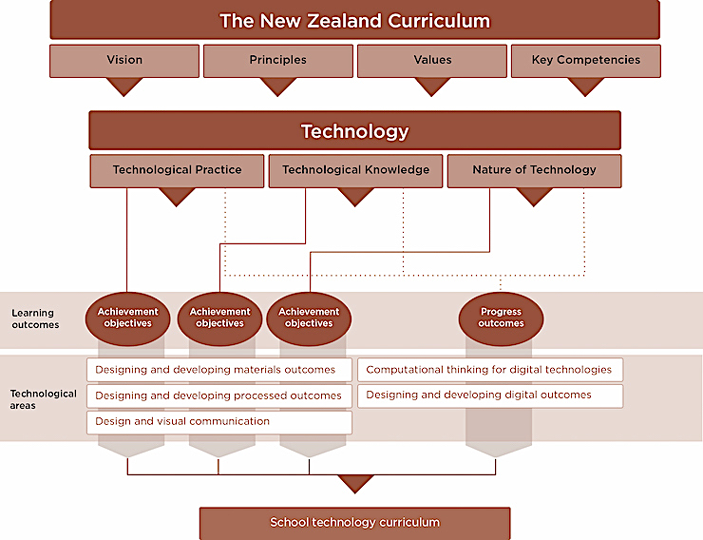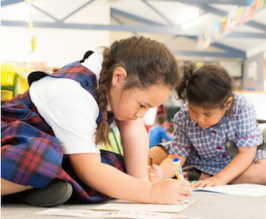Technology in the NZC
We are preparing to close this site soon as this content has now moved to Tāhūrangi.
Tāhūrangi is the new online curriculum hub for Te Tāhuhu o te Mātauranga | Ministry of Education.
 The technology learning area
The technology learning area

Technology was first introduced as a learning area in 1995. It was revised in 2017.
Download the Revised Technology Learning area PDF on New Zealand Curriculum Online.
Three strands provide the organising structure:
Technology is intervention by design. To intervene by design, students have to experience learning across all three strands so that they become designers of successful, fit for purpose outcomes.
The strands are the starting point for all teaching and learning in technology. None of the strands are optional, but sometimes particular strands may be emphasised at different times or in different years.
Five technological areas provide contexts for learning:
- Designing and developing materials outcomes
- Designing and developing processed outcomes
- Design and visual communication
- Computational thinking for digital technologies
- Designing and developing digital outcomes
In years 1–10, all students must be given learning opportunities in all five areas.
Your school technology curriculum should provide rich contexts for learning, including authentic cultural contexts, and those that draw on the wider curriculum.
Revised technology learning area structure
The diagram below shows how the three strands provide the organising structure for achievement objectives used in three of the technological areas. The achievement objectives underpin progress outcomes for the other two technological areas.

 Revised technology learning area
Revised technology learning area

The New Zealand Curriculum Online – Technology
The Ministry of Education has revised the technology learning area in The New Zealand Curriculum. It now includes two new technological areas:
The goal of this change is to ensure that all learners know about digital technologies and understand the decisions people make when they use them and create them. It's important that students have opportunities to be innovative designers and creators of digital solutions – moving beyond solely being users and consumers of digital technologies. We want them to be able to critically assess the impact of existing and new technologies on society and the environment.
While schools are expected to incorporate the revised learning area into their curriculum in 2020, we expect that change and implementation processes will continue beyond 2020.
The goal is to have students experience a rich curriculum that engages and challenges them, is forward-looking, and inclusive – and as a part of that they know how to use and create digital technologies.
Digital technologies support
Find information, resources, and professional support.
